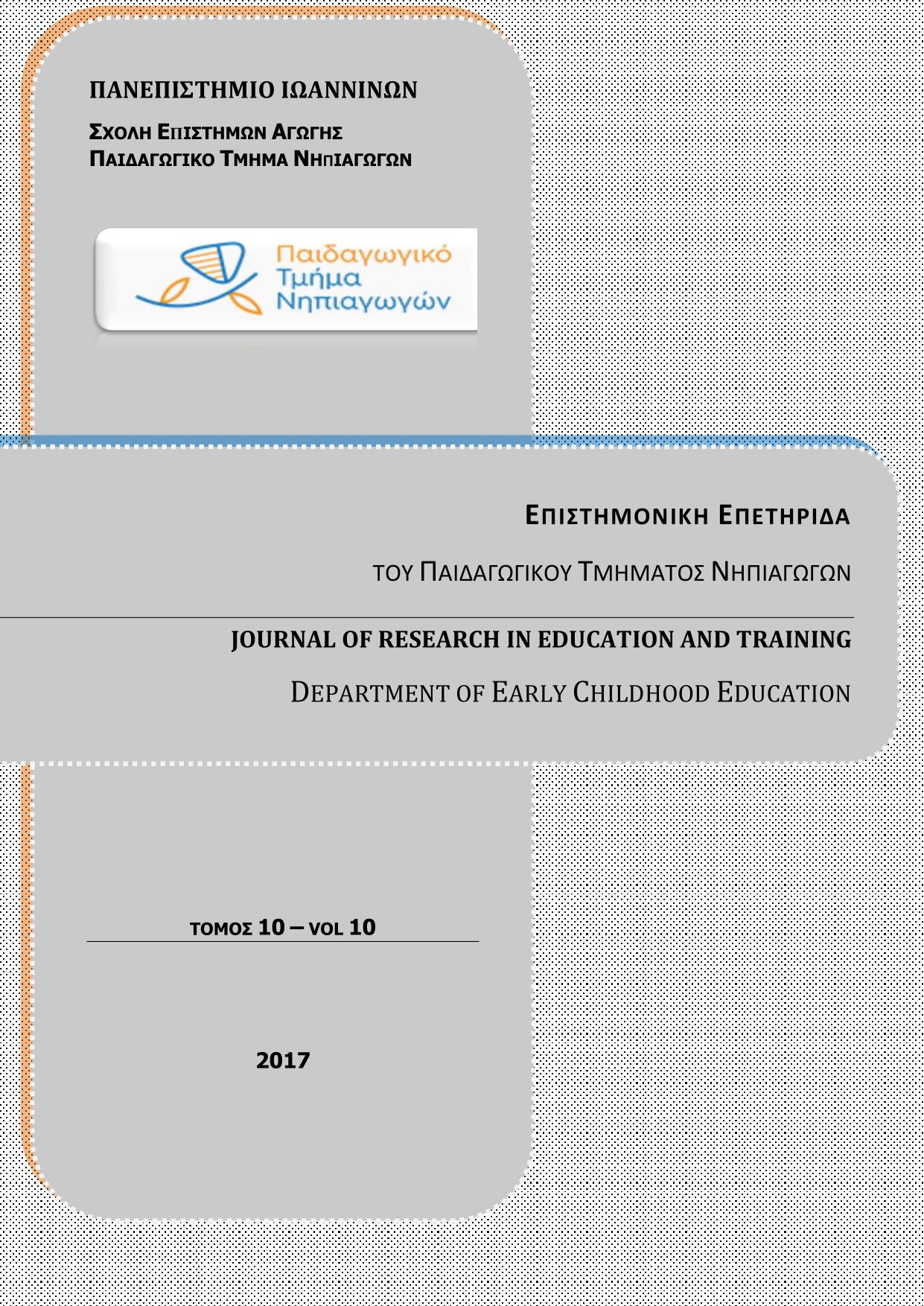Σύνδρομο επαγγελματικής εξουθένωσης και επαγγελματικό άγχος των εκπαιδευτικών δευτεροβάθμιας εκπαίδευσης: η περίπτωση της περιφέρειας δυτικής Θεσσαλονίκης

Περίληψη
Το επάγγελμα του εκπαιδευτικού δεν συνίσταται μόνο στην παιδαγωγική και ακαδημαϊκή διαδικασία που συντελείται μέσα στις αίθουσες διδασκαλίας. Η αλληλεπίδραση πολλών παραγόντων (γραφειοκρατικά-διαδικαστικά ζητήματα, εκπαιδευτικές αλλαγές, σχέσεις επικοινωνίας) συνθέτουν ένα εργασιακό περιβάλλον που δημιουργεί επαγγελματικό άγχος. Η παρατεταμένη έκθεση στο περιβάλλον αυτό οδηγεί στην εμφάνιση του συνδρόμου επαγγελματικής εξουθένωσης των εκπαιδευτικών. Σκοπός της παρούσας έρευνας ήταν να διερευνηθούν οι πηγές και τα επίπεδα του επαγγελματικού άγχους και της επαγγελματικής εξουθένωσης των εκπαιδευτικών. Επιπλέον, διερευνήθηκαν πιθανές συσχετίσεις μεταξύ βασικών πηγών του επαγγελματικού τους άγχους με διαστάσεις της επαγγελματικής τους εξουθένωσης. Το δείγμα αποτέλεσαν 211 εκπαιδευτικοί δευτεροβάθμιας εκπαίδευσης δημόσιων σχολείων της περιφέρειας Δυτικής Θεσσαλονίκης. Τα αποτελέσματα της έρευνας έδειξαν ότι οι εκπαιδευτικοί παρουσίασαν μέτρια επίπεδα επαγγελματικού άγχους. Ταυτόχρονα, παρουσίασαν χαμηλά επίπεδα σε όλες τις διαστάσεις του συνδρόμου επαγγελματικής εξουθένωσης. Επιπλέον, οι γυναίκες παρουσίασαν υψηλότερα επίπεδα άγχους από τους άνδρες σε όλους τους στρεσογόνους παράγοντες που το προκαλούν, ενώ η επαγγελματική εξουθένωση των εκπαιδευτικών, κυρίως η διάσταση της συναισθηματικής εξάντλησης, είχε θετική στατιστική συσχέτιση με όλους τους παραπάνω παράγοντες. Τέλος, έγινε φανερό ότι υπάρχει εμφανή συσχέτιση μεταξύ ατομικών παραγόντων και κοινωνικo-οργανωτικών παραγόντων της εργασίας στην παρουσία της εξουθένωσης, γεγονός που επιβεβαιώνει το βασικό επεξηγηματικό της μοντέλο.
Λεπτομέρειες άρθρου
- Πώς να δημιουργήσετε Αναφορές
-
Σπυρομήτρος Α., & Ιορδανίδης Γ. (2017). Σύνδρομο επαγγελματικής εξουθένωσης και επαγγελματικό άγχος των εκπαιδευτικών δευτεροβάθμιας εκπαίδευσης: η περίπτωση της περιφέρειας δυτικής Θεσσαλονίκης. Επιστημονική Επετηρίδα Παιδαγωγικού Τμήματος Νηπιαγωγών Πανεπιστημίου Ιωαννίνων, 10(1), 142–186. https://doi.org/10.12681/jret.13781
- Τεύχος
- Τόμ. 10 Αρ. 1 (2017)
- Ενότητα
- Άρθρα

Αυτή η εργασία είναι αδειοδοτημένη υπό το CC Αναφορά Δημιουργού – Μη Εμπορική Χρήση – Παρόμοια Διανομή 4.0.
Οι συγγραφείς που δημοσιεύουν σε αυτό το περιοδικό συμφωνούν στους παρακάτω όρους :
1. Οι συγγραφείς διατηρούν τα δικαιώματα πνευματικής ιδιοκτησίας επί των άρθρων τους, χορηγώντας στο περιοδικό το δικαίωμα της πρώτης δημοσίευσης. Άρθρα που δημοσιεύονται στο περιοδικό «Επιστημονική Επετηρίδα του Παιδαγωγικού Τμήματος Νηπιαγωγών της Σχολής Επιστημών Αγωγής του Πανεπιστημίου Ιωαννίνων» διατίθενται με άδεια Creative Commons 4.0, σύμφωνα με την οποία μπορούν να χρησιμοποιούνται ελεύθερα, με αναφορά στο/στη συγγραφέα και στην πρώτη δημοσίευση για μη κερδοσκοπικούς σκοπούς.
2. Οι συγγραφείς μπορούν να συνάπτουν ξεχωριστές, πρόσθετες συμβάσεις και συμφωνίες για την μη αποκλειστική διανομή του δημοσιευμένου στο περιοδικό έργου (π.χ. κατάθεση σε ένα ιδρυματικό αποθετήριο ή δημοσίευση σε ένα βιβλίο), με την αναγνώριση της πρώτης δημοσίευσης σε αυτό περιοδικό.
3. Στους συγγραφείς επιτρέπεται να δημοσιεύσουν την εργασία τους online (κατά προτίμηση σε ιδρυματικά αποθετήρια ή στην ιστοσελίδα τους) πριν και κατά τη διάρκεια της διαδικασίας υποβολής, καθώς αυτό μπορεί να οδηγήσει σε παραγωγικές ανταλλαγές, όπως επίσης και παλαιότερες και ευρύτερες παραπομπές δημοσιευμένων εργασιών (The Effect of Open Access)


